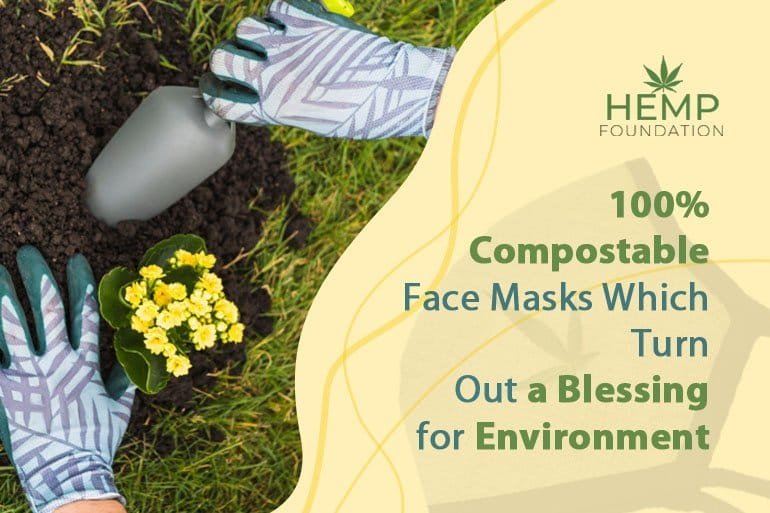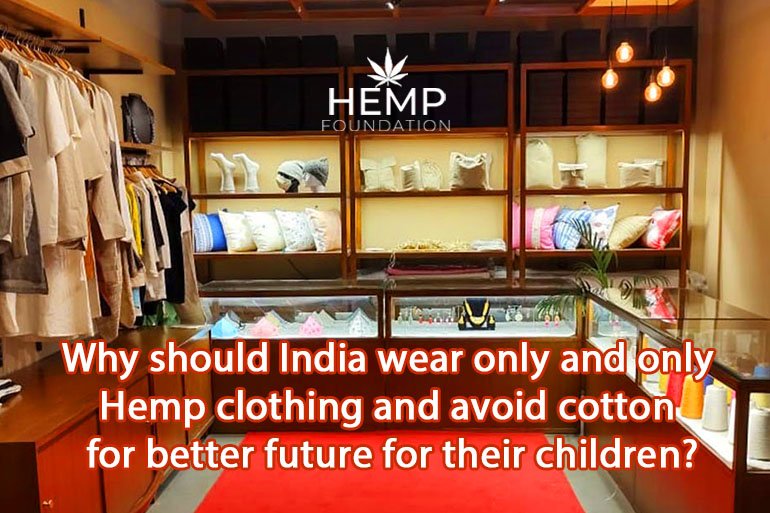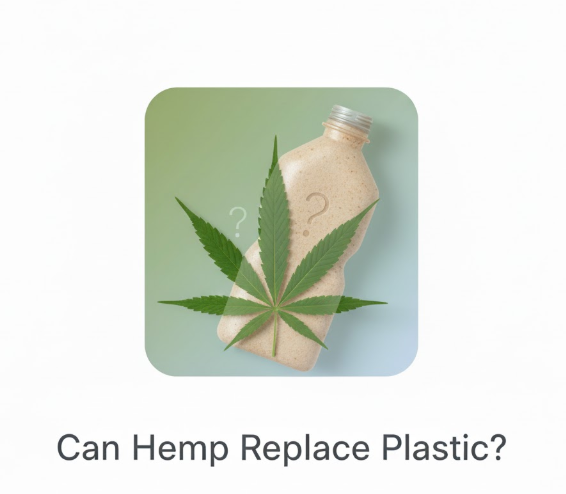100% Compostable Face Masks Which Turn Out a Blessing for Environment
Face masks have become omnipresent in 2020, thanks to the Covid situation. These masks are supposed to protect us from the fatal virus, acting as our first shield of defense.
But have you ever thought about what are we going to do with the billions of masks that would have accumulated by the time we are able to find a vaccine for the pandemic? According to an estimate, 129 billion disposable face masks and 65 billion gloves are finding their way to the dustbin every month.
Single-use masks end up degrading the environment
Most disposable protective gear is constituted of plastics like polypropylene, polythene and vinyl. These masks are single-use, meaning you have to throw them away after use. Rather than recycling them or retaining them for any other sustainable use, you have to dispose of them. For now, they are one of the least sustainable elements around. They are to end up in landfills, rivers, or oceans, causing severe damage to the environment we live in.
It is important we recognize the destructive potential of these masks and replace them with something that is 100% compostable.
Understanding Composting
Composting is a process of sustainable waste management, which transforms organic waste into natural elements. Microorganisms, usually bacteria and fungi, break down organic wastes and reduce waste volume. Several harmful organisms get eliminated in the process. Wastes produced naturally are generally compostable. Manure from kitchen scraps, livestock operations, and garden wastes like leaves and grass clippings.
While eating up the waste materials, the microorganisms used the carbon present in the waste as their source of energy and nitrogen for protein. The process generates heat, which would several unwanted organisms like pathogens and weed seeds. Materials containing nitrogen would degrade into the original materials, improving the fertility of the soil. Composting allows for the gradual release of nutrients in the soil, which would help in agriculture and gardening.
Materials which promote composting
For a quick pace in composting a suitable environment is needed. A Carbon: Nitrogen (C: N) ratio of 30:1 is perfect for the process. Various organic matters carry carbon and nitrogen in different amounts and ratios. Excessive presence of carbon or very large particles pushes down the speed of composting. If nitrogen is simply too much, it will generate a lot of heat, exterminating the composting organisms.
Find mask which compose easily and rapidly
Look for products that are biodegradable. Hemp has emerged as an ideal material to make face masks with. Hemp masks can effectively reduce plastic pollutants during the coronavirus pandemic, replacing the single-use protective gear that takes centuries to decompose with eco-friendly and compostable material.
Are hemp masks the solution?
Hemp is a natural product and will get assimilated into nature, once it is disposed off. The eco-friendly quotient of face masks produced by the Hemp Foundation is boosted by our policy of never to use agricultural chemicals or pesticides for producing hemp. Moreover, farming families in Uttarakhand, the state we source our hemp from, have rich generational wisdom of organic farming. We only grow fully organic hemp. These masks keep you safe from chemicals when you are using them and even after the disposal, they keep the soil unaffected.
While hemp is known for replenishing the soil and remediating contaminated soils and even a hemp mask produced without using chemicals retains these attributes. It is time we renounce single-use masks and deploy hemp for producing hemp plastic, which is very much affordable and biodegradable substitute to soil-contaminating disposable masks, made of petroleum-based plastics.
Hemp plastics are naturally biodegradable
Hemp cellulose, which is used for making hemp plastics, is easily obtainable. Moreover, it is naturally biodegradable and does not stay in the environment to actuate biomagnification.
Using masks made of hemp plastics not only helps prevent soil pollution but indirectly, stops air pollution as well, which is a byproduct of the manufacturing of regular masks. As the statistics reveal, millions of people die every year because of polluted air. Continual release of pollutants in the air makes it poisonous, making it detrimental to the life of all the creatures.
Hemp plants come across as efficient carbon sinks. These plants and even the products made of them are of immense help in fighting air pollution.
Biodegradable masks are packed with the goodness of nature
Made of hemp, the marvel plant, these biodegradable masks resist pathogens and are packed with the goodness of nature. These masks are not just antibacterial, anti-fungal, antiviral, and porous, they are also air-permeable and compostable. You can use them with full confidence and comfort, and when you want to dispose of them, you can put them into the dustbin, with full knowledge that these won’t end up polluting the soil and environment.
Contrary to the mask made of synthetic materials, you can use these masks up to several washing cycles. The biodegradable fibers work as a shield of defense not just against Covid, but also other virus, bacteria, sprays, splashes, etc. Many of these masks are double-layer, acting as a sink for all the harmful elements around. Your mind is in peace, knowing well that you are safe, while also taking pride in the fact that you are not causing any harm to your surroundings and doing your bit for society.
Summing up
Composting focuses on tapping into the natural process of decomposition to enhance the pace of the decay of waste. Hemp masks are 100% compostable. These masks are not only comfortable and convenient, but also work as a strong shield against viruses and are friendly to environment as well. No other material comes anywhere close to hemp mask when you take into account all these attributes.





